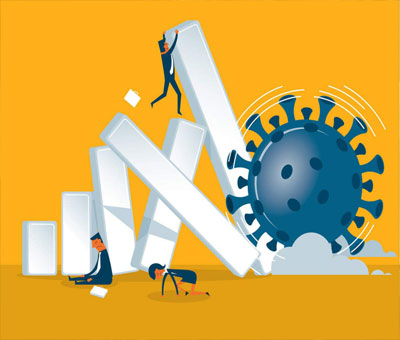
If we say that 2019 was a very difficult year for the leather industry, it will mean that we have not really expressed its difficulties, and only briefly stated the difficulties of this year. The industry was under pressure last year in all respects and even suffered casualties at various times. However, there is an optimistic and, of course, cautious view of the state of the industry in the second half of 2020.
A recent questionnaire asked some analysts, observers of the leather industry market, tanners, traders, academics, chemical suppliers and car manufacturers that the situation in the leather market will be in the future. After reviewing the questionnaire, it was found that these people have generally expressed optimism about the state of the industry in the next six months.
Many of them believe that despite the increase in sales and progress that occurred at the end of last year, 2019 was still a cruel year for the leather industry, which generally damaged the reputation of the leather industry. Rising trends in veganism and pessimism about meat and leather, rising raw material prices, a competitive market for leather alternatives, and declining global demand for leather have caused the industry to suffer heavy losses.
However, predictions are that despite the situation affected by the coronavirus, there are signs that the leather market is improving and the situation is changing. These positive signs have mainly appeared in China, and it has become clear that the volume of sales of American export products to this country has grown significantly.
It should be noted that this growth is due to the trade war between the two countries. In Australia and Europe, especially in the leather and furniture sector, there are good signs of increasing demand for these products. This has allowed leather traders to consider relatively higher prices for their products for the first time in recent years.
It is noteworthy that the leather market will grow more in the coming months. In fact, the market will get out of this situation and will continue to grow faster.
Leather industry organizations have also played an important role in countering counterfeit news about the industry. A campaign called “Macha” is one of the measures that has achieved success in this field.
Along with these measures, it is necessary to accelerate the process of improving the condition of leather and educate leather consumers, especially the new generations who are seemingly unfamiliar with leather. However, some customers have gradually come to believe that alternatives to vegans, as well as other plastics derived from petroleum products, are more harmful to the environment than sustainable materials such as leather. Due to these cases, the leather industry in 2018, although it suffered losses, but never completely failed.
Today, we are facing a situation in the world that is unprecedented since World War II, and as a result, various businesses must work to overcome the current situation and withstand these pressures. Organizational resilience is a concept used to deal with an organization with environmental risks and challenging situations. This concept strengthens the attitudes and constructive behaviors of organizational leaders and improves a company’s ability to cope with emerging crises.
By improving an organization’s resilience to problems, that organization is more resilient, and managers make better decisions about the survival and sustainability of the organization. In this section, we look at eight characteristics of resilient organizations to overcome the corona virus crisis.
While there is no clear understanding of this global crisis, senior executives in the leather and leather products industries must accept that normal conditions have become an emergency, and that companies will remain in serious jeopardy if they do not comply. Admittedly, accepting and understanding the existing reality is the first step in dealing with this pervasive crisis.
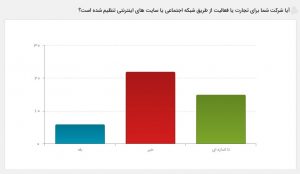
The rapid global spread of the disease (Coronavirus pandemic) and the constant spread of various news and reports about it in the country over the past month have added to the uncertainty and how to deal with it. Confidence is also considered an important part of any business. Too much ambiguity means how much people feel threatened in adapting to environmental change. When changes occur quickly and unpredictably, the information is inadequate and opaque, and the difference in people’s attitudes affects the way they react. People with high levels of ambiguity often have a good understanding of events, and conversely, low levels of ambiguity greatly reduce people’s effectiveness in dealing with challenges. As a result, increasing the tolerance of ambiguity makes it more difficult for managers to deal with the problems and stresses of business crises.
Therefore, the second step after accepting the fact is that the leaders of companies and organizations should increase their tolerance of ambiguity and free their organization from the target of negative news and various speculations. Undoubtedly, this effective measure will improve the psychological security of managers in the face of the Corona crisis.
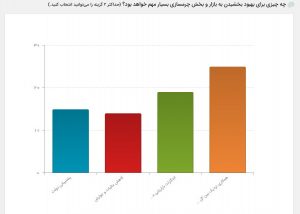
Senior executives need to keep in mind that the severity and extent of the Corona crisis is so great that it cannot be easily overcome without the help of the organization’s elite. Therefore, with the proper formation and support of different work teams in the supply chain, production, marketing and sales, finance, distribution, after-sales service, human resources, and 3 other fields, the increase of these teams is provided and decisions are made based on the proposed measures.
The presence of the organization’s leaders in specialized teams to deal with the Corona Crisis will increase the better cooperation of these teams and strengthen the team spirit, and encourage team members selected from different levels of the organization to perform their duties effectively.
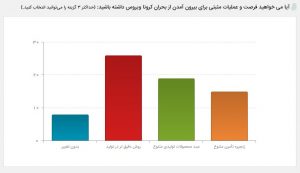
Although the imposition of the Corona Crisis has prompted top executives in the leather and leather goods industries to take urgent action, this should not cause them to act hastily. Decision-making based on data analysis is the key that senior executives should not overlook.
In fact, senior managers, in addition to taking advantage of their intuition, which has emerged from their many years of experience and learning, must use the coherent analysis of work teams that have produced and processed a variety of information.
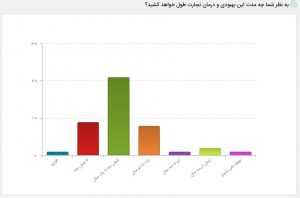
Leverage points are neighborhoods of a complex system where a small change in a component can bring about major changes in all components of the system. In the event of a coronavirus crisis, industry managers need to identify leverage points and guide the organization in the right direction.
There is no quick and easy formula for finding leverage points, and every company needs to learn where its leverage points are based on re-examining its performance. In fact, focusing on leverage will lead to the realization of organizational strategies and improve the activities of the organization and provide services to customers.
Focusing on the leverage points that are the strengths of the organization provides a more competitive advantage for the organization. In this regard, you should also pay attention to the key competencies and key factors of success.
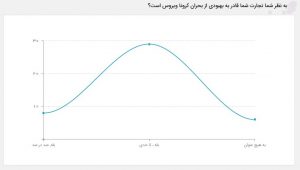
Informing and clarifying the decisions and actions of the organization to stakeholders, including suppliers, employees, suppliers, customers and shareholders, is one of the valuable activities that will provide effective support to stakeholders. Continuing to provide timely information will put the organization’s managers in a position to ensure that stakeholders avoid future potential tensions.
Clarifying the actions taken and the decisions taken along with the honest behavior can help the leaders of the organization to draw a realistic and optimistic outlook and have a positive impact on stakeholders, especially employees and shareholders.
Today, we are facing a crisis that the passage of and the aftermath will no longer mean a return to the original conditions. The supply chain in the world is damaged. Therefore, leather manufacturers and leather products need entrepreneurial measures to supply raw materials, find new resources, better communication with customers, and enter new fields.
In the post-Corona period, we will see a change in customer attitudes and lifestyles that will affect the logic of business models and the value proposition. Therefore, senior managers should pay attention to entrepreneurial measures to solve problems, find new solutions and attract employee participation. It is important to discover new opportunities and take advantage of existing capacities or capabilities in this field.
One of the most important tasks for leather industry executives and leather goods in the face of major crises, including corona, is to make employees feel that the organization still values and cares for them. Managers need to show employees that by understanding the various dimensions of the crisis, they are working to neutralize the threats ahead and use the capabilities of the staff in this way.
Encouraging employees to take initiatives will reduce the stress on employees and will greatly increase their active participation to get out of the crisis faster. Employee support in these situations has a positive impact on long-term employee commitment. The loss of talented forces in the current post-post-Macron era will not be easily remedied.